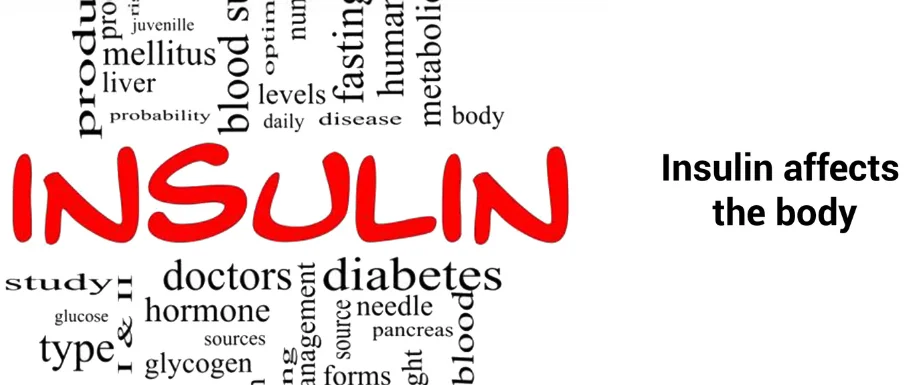What is Insulin?
Insulin is a hormone produced by the pancreas in the body that allows body to use sugar from carbohydrates in the food that we consume. Insulin regulates many metabolic processes that provide cells with needed energy. Understanding insulin, what insulin does, and how it affects the body, is important to your overall health.
Specifically, insulin allows the cells in the muscles, fat and liver to absorb glucose that is in the blood. Insulin also affects other metabolic processes, such as the breakdown of fat or protein
Diabetes is a condition where insulin is insufficiently produced in the body.
Various types of insulin are used to treat diabetes and include:
- Rapid-acting insulin: It starts working approximately 15 minutes after injection and peaks at approximately 1 hour but continues to work for two to four hours. This is usually taken before a meal and in addition to a long-acting insulin
- Short-acting insulin: It starts working approximately 30 minutes after injection and peaks at approximately 2 to 3 hours but will continue to work for three to six hours. It is usually given before a meal and in addition to a long-acting insulin
- Intermediate-acting insulin: It starts working approximately 2 to 4 hours after injection and peaks approximately 4 to 12 hours later and continues to work for 12-18 hours. It is usually taken twice a day and in addition to a rapid- or short-acting insulin
- Long-acting insulin: It starts working after several hours after injection and works for approximately 24 hours. If necessary, it is often used in combination with rapid- or short-acting insulin
Effects of Insulin
In addition to the regulation of glucose, insulin also plays a role in other areas of the body. It may be involved in all of the following functions.
- Modify the activity of enzymes and the resulting reactions in the body
- Build muscle following sickness or injury via the transportation of amino acids to the muscle tissue, which is required to repair muscular damage and increase size and strength. It helps to regulate the uptake of amino acids, DNA replication and the synthesis of proteins
- Manage synthesis of lipids by uptake into fat cells, which are converted to triglycerides
- Manage breakdown or protein and lipids due to changes in fat cells
- Uptake of amino acids and potassium into the cells that cannot take place in the absence of insulin
- Manage excretion of sodium and fluid volume in the urine
- Enhance learning and memory of the brain functions
